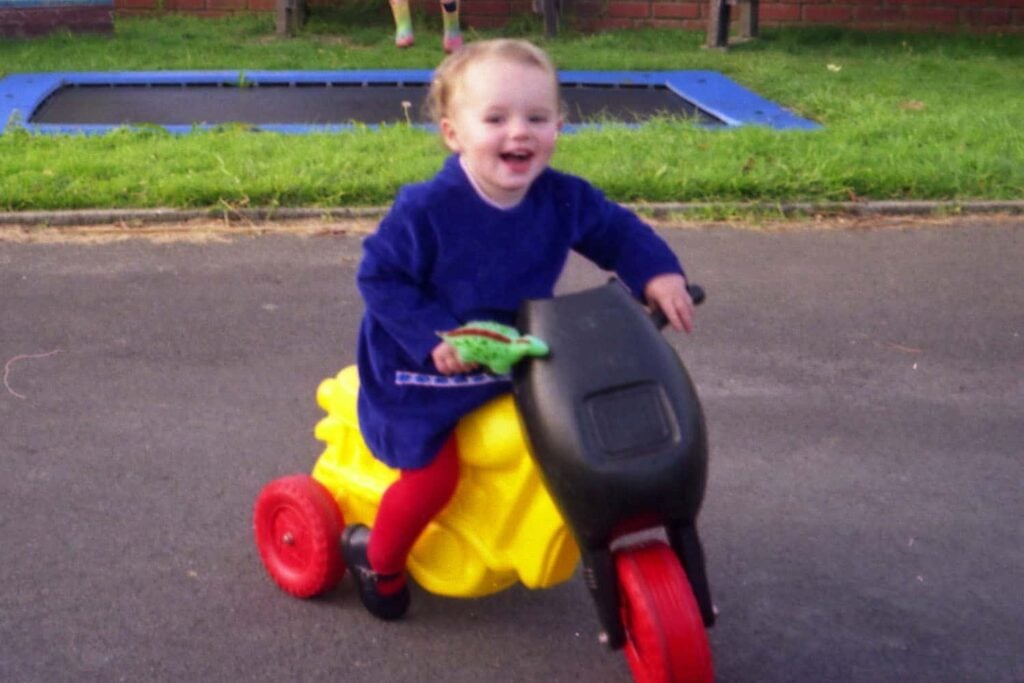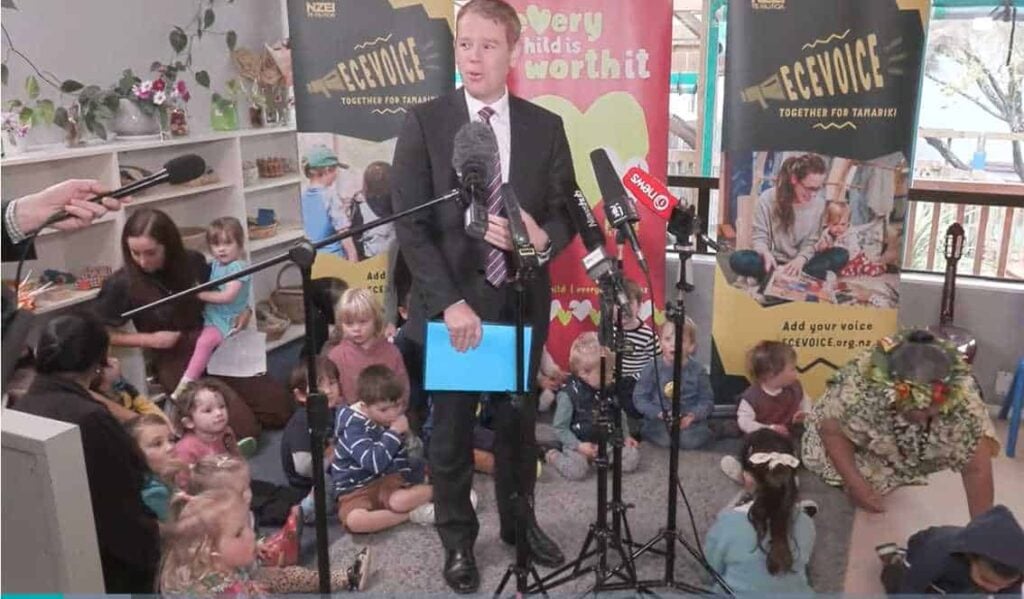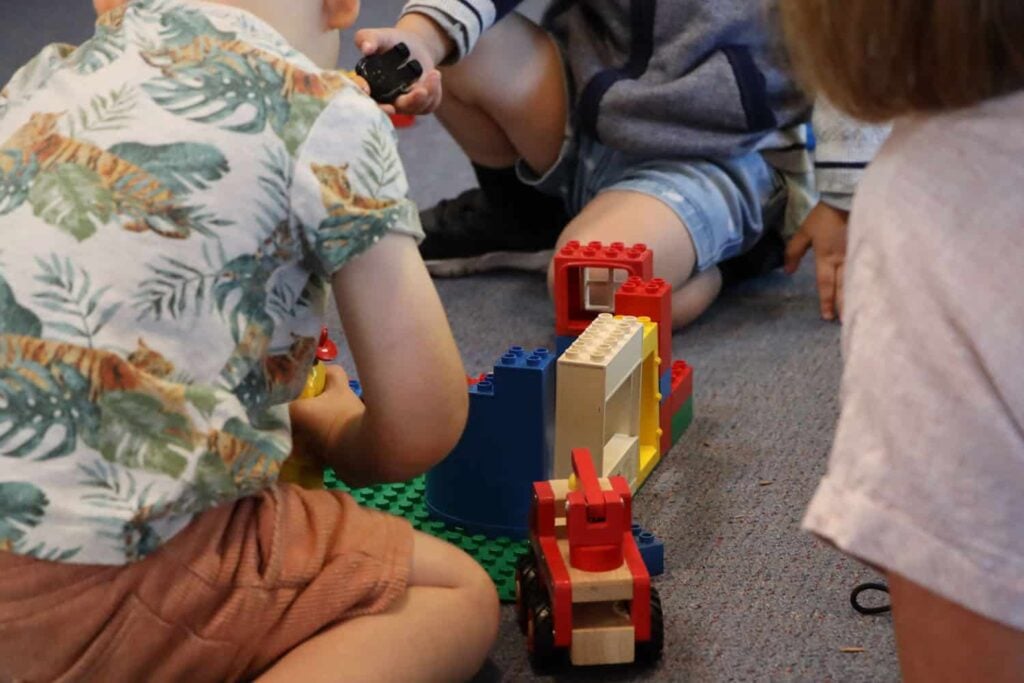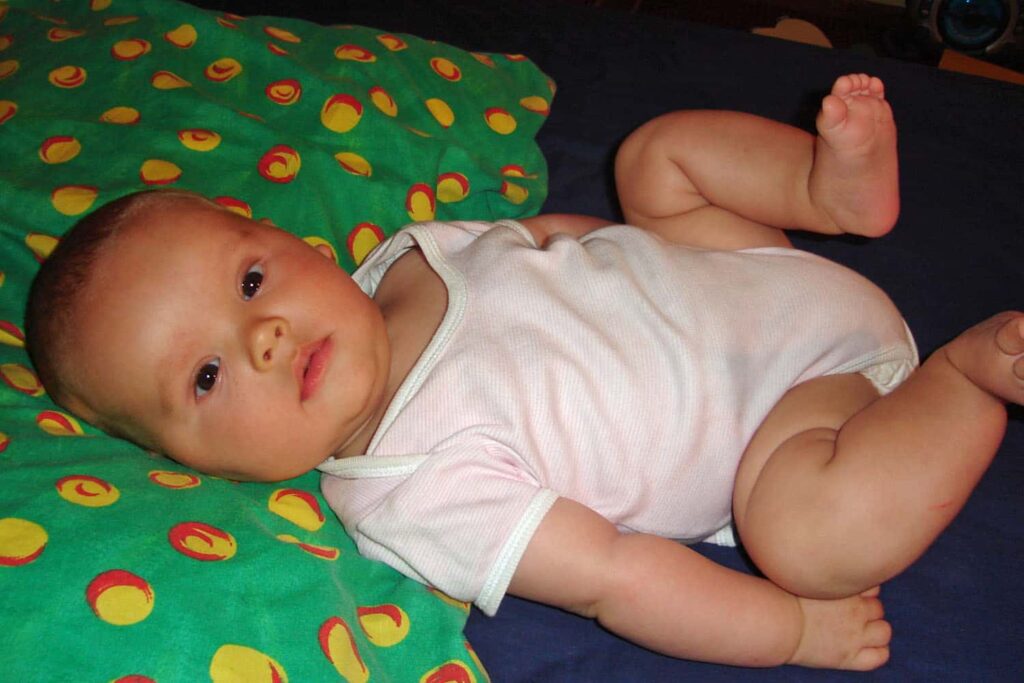EC-Menz Summit Theme: “Lifting the Lid on Gender Issues in Early Childhood Education”
Held 7th-8th March, 2014.
Wellington City, New Zealand.
Conference Mihi Whakatau / Opening
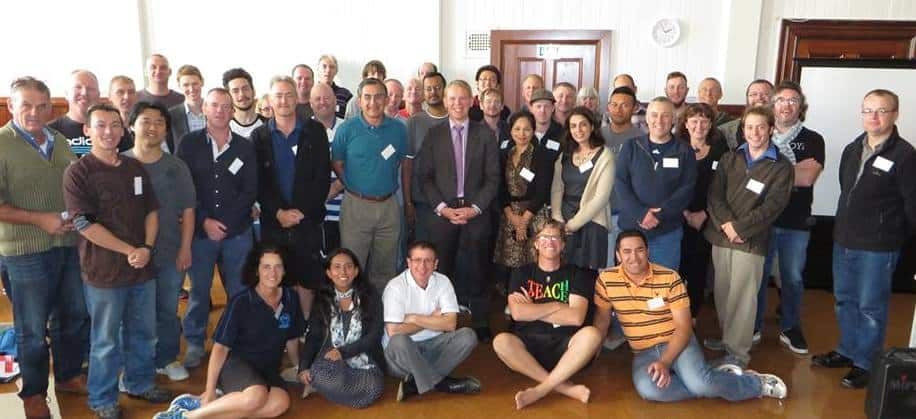
Graham Stoop (Ministry of Education Deputy Secretary, Graduate Achievement, Vocations and Careers)
Opening Address
Jackie Blue (Equal Opportunities Employment Commissioner)
Dr Sarah Alexander
NZ survey findings and overseas approaches to increasing male representation in ECE
Chris Hipkins (Labour Party Spokesperson for Education)
Plenary Session “Issues and Celebrations”
Chaired by: Peter Visser
Speakers: James Hamilton (student Otago Uni), Steve Dunn (teacher), Phil Ozanne (teacher educator) and David Berry (teacher)
Bev Cassidy-Mackenzie (CEO, Equal Employment Opportunities Trust)
Opening Address for Saturday’s programme
Men in ECE: A quantitative review of the current and past situation in NZ
Andrew Morrison
Ministry of Education, Wellington.
There were around 480 men teaching in licensed ECE services in New Zealand in 2013. This is just over 2% of the ECE teaching workforce and this proportion is higher than it has been in recent years. The purpose of this presentation is to provide a statistical profile of men in ECE in New Zealand over the last decade using data collected from the Annual Census of ECE Services. It looks at trends in numbers and location of men in ECE, by type of service, ethnic group, qualifications and other demographic and service characteristics, comparing these with corresponding statistics for women in ECE. The presentation also looks at current graduation trends for men enrolling in ECE teaching qualifications, to explore what might happen to current growth trends in the near future.
Frankly, can I be trusted?
Bryan Salisbury
Kei Te Koa Early Learning Centres, Auckland.
So, you are alone with a child 3 years of age – perhaps your own, maybe a niece or nephew, or possibly a child in an early childhood centre. No one is watching and no one will know … In this presentation Bryan will tell his story of being a single dad, becoming an early childhood teacher, avoiding unjust accusations, and being a male leader in the female dominated sector of ECE. Trust, self-doubt, accountability and how our decisions affect a child’s future will be explored and discussed.
One man’s personal journey to becoming a registered male EC teacher including all the dung hurled his way
Stuart J Miller
Porirua.
The purpose of the presentation is to talk about the real life experiences of one man’s journey to full teaching registration and the issues faced both negative and positive. It will cover: the reasons for becoming a male ECE teacher, the positive and the negative sides to becoming fully registered, and my thoughts based on the journey on how to change things to encourage more men into the profession. Photos will be incorporated into the presentation along with excerpts from articles on the issue and these will be compared to real life experiences for reflection on whether these articles really shine a lens on the male ECE teacher experience. Participants will gain insight into the context of one man’s journey and why when one weighs up the negative and positive sides of the journey that it’s a journey worth undertaking and how to maybe make it more positive for more men to enter the profession.
Science in ECE – A hands on approach with ropes and pulleys
James Lochead-Macmillan
Kidicorp, Auckland.
During my time as an ECE teacher, I have noticed that science often appears to be a forgotten area within the daily ECE curriculum. From personal experience, I note most ECE centres offer learning experiences involving tried and trued activities such as volcanoes, but science has a much greater scope than simply reacting acids and alkaline. Physics is an interesting area that provides wonderful and engaging opportunities for hands on leaning through simple experiments using ropes and pulleys. Through hands on exploration, children can develop a basic understanding of the simple physics underpinning ropes and pulleys. Although such concepts as ‘physics’ and ‘ropes and pulleys’ may initially appear complex and potentially expensive – this workshop will explore simple and easily achievable ideas that will enthuse and motivate ECE teachers to engage in science and physics in their centres. At First Steps Waiuku we have been experimenting with ropes and pulleys for just over last 18 months. This presentation aims to share our experiences, to explain the safety precautions, suitable locations for rope and pulley work, the selection and use of appropriate materials and how children’s working theories maybe developed, extended and challenged through the use of hands on exploration of simple physics.
How to set up an early childhood centre on the smell of an oily rag
Bryan Salisbury
Kei Te Koa Early Learning Centres, Auckland.
Driven by the desire to bring early childhood education to an under-provided and under-participating suburb in Auckland, Bryan has succeeded in setting up a private kindergarten for a fraction of the cost that other centres spend. Step into his journey, endure the challenges, enjoy the rewards as he lifts the lid on obstacles and inequalities he faced, and shares tips on overcoming them in a humorous and informative presentation.
Men studying ECE: Perceptions and reality from inside and outside the box
Tahera Afrin, Sandy Duncan and Dr Syed Jamali
ICL Business School, Auckland.
Our study looked at whether approval for men to undertake early childhood teacher education study is common. The data source included two groups of people to see how they perceive males studying ECE. The first group is related to the ECE sector, and comprises ECE teacher educators, teachers, students and parents. The second group of people comprises other professionals, not linked to ECE. Both groups were questioned to achieve four research goals: 1) to learn how the ECE relevant group perceive the males studying ECE, 2) to learn how the ECE non-relevant group perceive them, 3) to analyse any difference in their perceptions, and 4) to collate proposals from both groups on how to increase male participation in ECE. Under a qualitative research paradigm, 36 participants completed a six-item open-ended questionnaire; 18 ECE- relevant and 18 ECE non-relevant. Purposive random sampling was used to include people from different genders and ages. Some of the participants are from a Private Training Establishment (PTE) and others are from three early childhood services in Auckland. Collected data was analysed by 2-level coding. The findings point to the ECE-relevant group being more supportive of men studying ECE, however, more innovative ideas on how to increase the low male participation were suggested by the non-ECE group.
What can we do to increase men’s participation?
Adam Buckingham.
We need to be proactive in increasing men’s participation as it is essential for children to have both men and women working together in their care and education. We acknowledge the fundamental contributions of female staff and mothers working with young children and also recognise that male staff and male volunteers are just as vital in early childhood services. Join us to debate and create strategies to encourage acceptance within early childhood services of the important role of male staff, to prevent men’s professional isolation, and how to encourage and support males to enter and stay in the field.
Tours for EC-Menz attendees
Saturday: Lunch-time private tour for EC-Menz conference attendees of Parliament and parliament buildings



